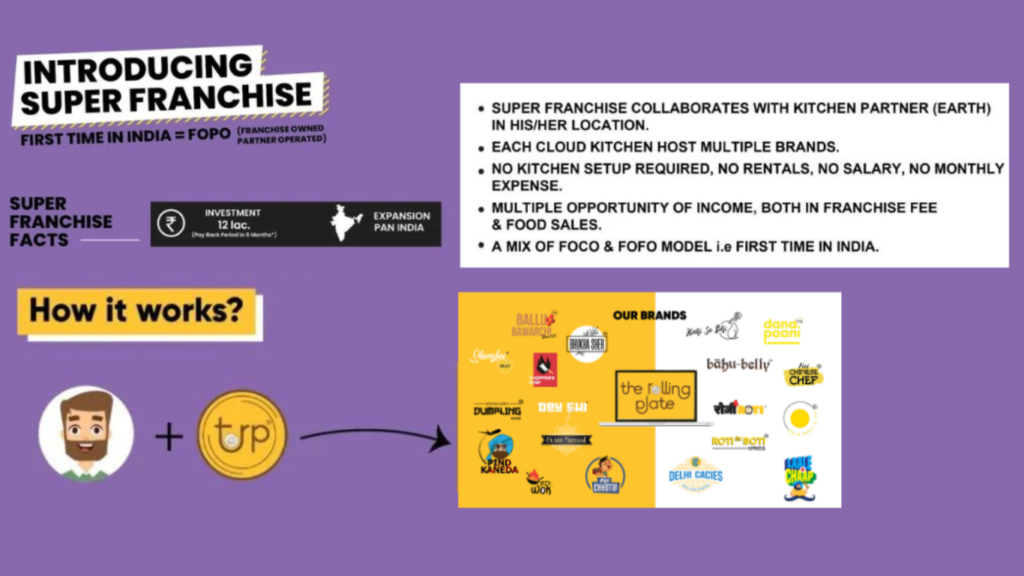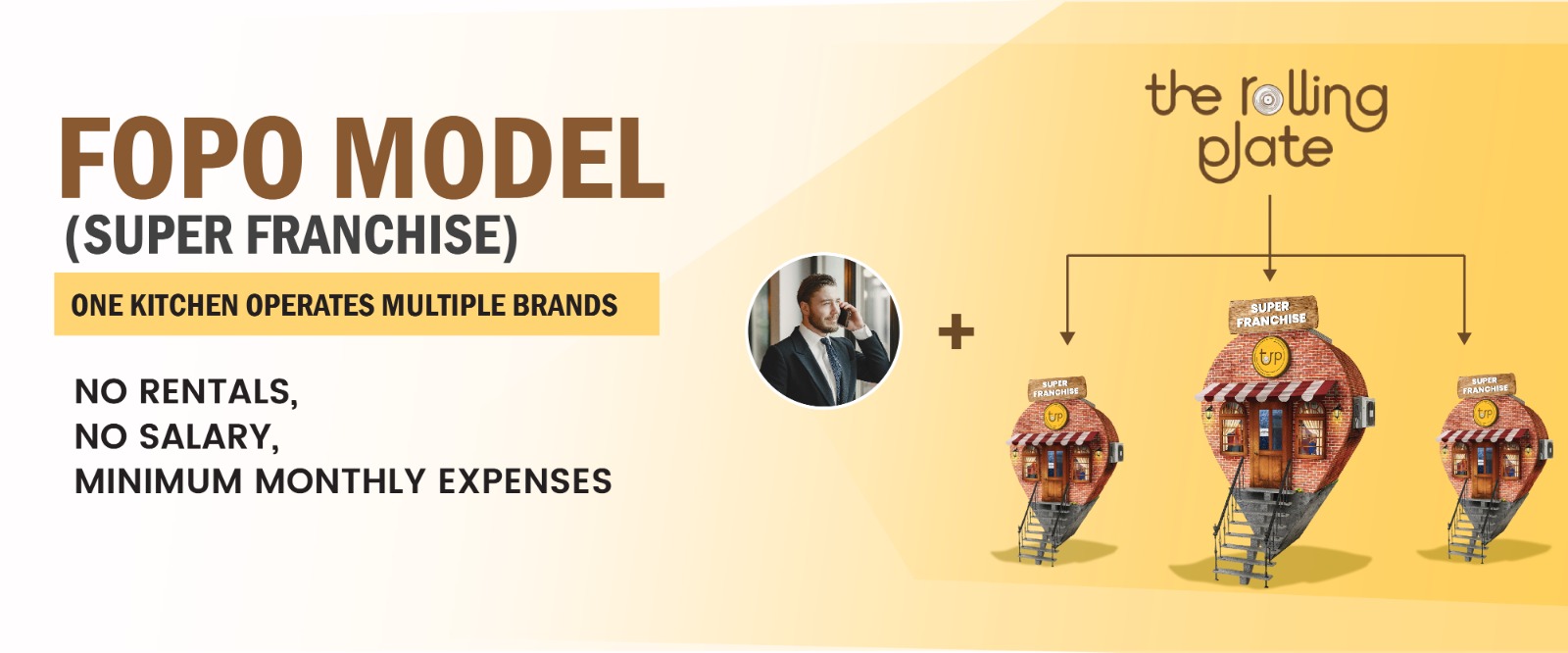What is FOPO Model Franchise
FOPO Model Franchise

The Rolling Plate for the first time in India, the FOPO Model Franchise business model will be a game changer in India’s food and beverage Industry. Various models and strategies have emerged to foster growth and success in the dynamic business world. One such model that has gained prominence is the Franchise Owned Partner Operated FOPO Model Franchise.
This unique approach combines the advantages of franchising and partnership, offering a mutually beneficial arrangement for both franchisors and partners.
In this article, we will delve into the details of the FOPO business model, exploring its benefits, how it works, and USPs provided by The Rolling Plate in this model.
What is this first in India FOPO business model?
The Franchise Owned Partner Operated FOPO Model Franchise refers to a collaborative arrangement where a franchisor grants the right to operate a franchise unit to a partner who takes on the business’s day-to-day responsibilities.
Unlike traditional franchising, where the franchisor solely owns and operates the units, theFOPO Model Franchise allows for a partnership between the franchisor and a selected partner. This model enables the franchisor to expand its reach and tap into local expertise. At the same time, the partner benefits from the established brand, support, and training the franchisor provides.
How Does the FOPO Business Model Work?
Partner Selection Process:
For the success of the FOPO Model Franchise, the franchisor must carefully select suitable partners. The partner selection process involves evaluating candidates based on their business insight, experience, financial capability, and cultural alignment with the franchisor’s brand.
This rigorous selection process aims to identify partners who can effectively represent the brand and drive growth in the designated market.
Division of Responsibilities:
The FOPO Model Franchise operates on a clear division of responsibilities between the franchisor and the partner. While the franchisor retains control over the brand, overall strategy, and quality standards, the partner takes charge of the day-to-day operations, including hiring and training staff, managing inventory, and ensuring customer satisfaction.
This division allows both parties to focus on their respective areas of expertise, fostering a collaborative environment where success is shared.
The FOPO model can offer several benefits:
- Shared expertise: The franchisee brings their local market knowledge and operational experience to the partnership, while the franchisor or partner provides their established brand, systems, and support. This collaboration allows for a combination of strengths and expertise from both parties.
- Motivated franchisee: By becoming a partner in the business, the franchisee has a higher stake in its success. This can increase motivation and dedication to the operations, leading to better business performance.
- Risk-sharing: With a partnership or joint venture, the risks and financial burdens of the business are shared between the franchisee and the franchisor or partner. It can mitigate risks for both parties and provide a more balanced approach to investment and growth.
- Local market focus: The franchisee’s involvement in day-to-day operations allows for better adaptation to local market conditions and customer preferences. The partnership can leverage the franchisee’s understanding of the local market. At the same time, the franchisor or partner can provide broader strategic guidance.
It’s important to note that the specific terms and arrangements of FOPO Model Franchise can vary depending on the franchise system and the partnership agreement.
Franchisees considering this model should carefully review the terms, consult legal and financial advisors, and thoroughly understand the responsibilities and expectations associated with the partnership.
Why choose FOPO Model Franchise Super franchise business model?
With an investment of 12 lacs upfront and a payback time of 6 months, this is India’s first and cheapest FOPO business model from The Rolling Plate’s business growth strategy in India.
In this FOPO business model, One local cloud kitchen can operate multiple brands under The Rolling brand parent company. It means you won’t need any additional rental, salaries, etc. From this business model, you can have the opportunity to earn more through franchise fees and food sales.
You might have questions like “Can a partner become a franchisor in the future”? Yes, in some cases, a successful partner may have the opportunity to become a franchisor in the future. Suppose the partner demonstrates exceptional performance, scalability, and the desire to expand their network of franchise units. In that case, the franchisor may consider granting them the opportunity to become a franchisor.
Conclusion
The Franchise Owned Partner Operated (FOPO) business model offers a compelling approach for both franchisors and partners to achieve mutual growth and success. By combining the advantages of franchising and partnerships, the FOPO model allows for rapid expansion, leveraging local expertise, and sharing risks and rewards.
While challenges such as maintaining consistency, balancing control and autonomy, and effective communication exist, implementing the FOPO model with careful planning, training, and support can lead to remarkable achievements. Aspiring entrepreneurs and established franchisors alike can explore the potential of the FOPO Model Franchise to expand their businesses and create lasting partnerships.
What is FOPO Model Franchise

